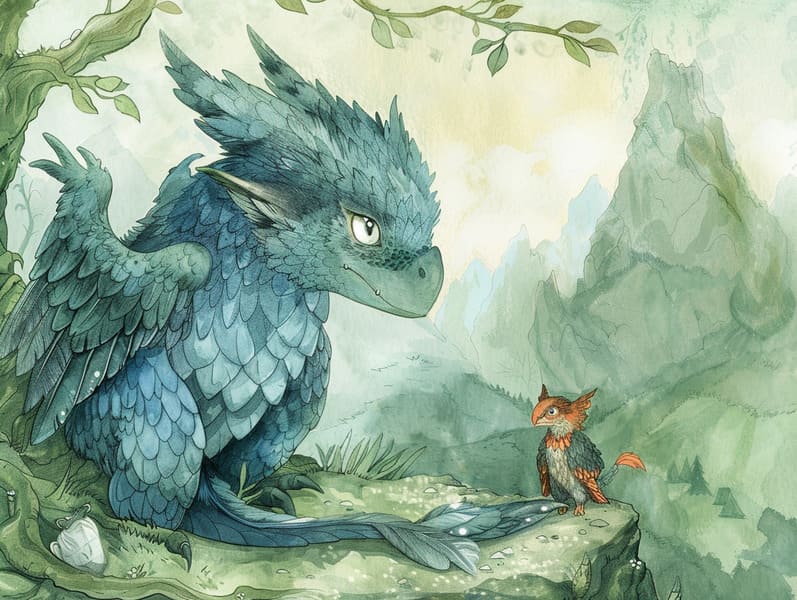Embracing the Joy of Nighttime Adventures: Building Beloved Moments with Your Family
Embracing the Joy of Nighttime Adventures: Building Beloved Moments with Your Family
Blog Article

The end of the day is a important time for kids and their parents. It’s a moment to settle down, snuggle, and enjoy the joy of stories.
For generations, sleep stories for kids have been a adored legacy, offering more than just a way to slumber. They provide an opportunity for affection, education, and fueling fantasy.
Why Bedtime Stories Matter
Bedtime stories for kids serve more than a way to end the day. They play a crucial role in a child’s progress and in nurturing the guardian-child link. Here’s why they matter:
1. Connection Time: Telling bedtime tales creates a special bonding time between parents and children. It’s a moment of proximity that helps children feel cherished and secure.
2. Speech and Language Skills: Listening to stories helps children develop their language acquisition. They learn new terms, understand construction, and refine their listening and grasping abilities.
3. Imagination and Creativity: Narratives for little ones take them to magical worlds, encouraging inventiveness. They picture characters, settings, and adventures, which sparks their creative thinking.
4. Feeling Recognition: Kids' tales often depict characters facing obstacles and reactions. These scripts help kids handle and process their own reactions, encouraging emotional understanding.
5. Thinking Skills: Paying attention to a narrative helps children develop awareness, remembering, and logical thinking. They pick up to follow lines of thought, remember elements, and project conclusions.
Making Storytime a Bedtime Ritual
Starting a bedtime custom that features narrating bedtime stories is doable and worthwhile. Here’s how to turn it into a valued part of your bedtime habit:
1. Find a Cozy Place: Select a quiet place where you and your child can snuggle up without disturbances. A relaxing bed or a quiet reading nook works great.
2. Set a Regular Time: Choose a set time each night for tales. Consistency helps children be ready and makes the tradition easier to follow.
3. Pick Age-Suitable Stories: Opt for tales that suit your child’s interest level. Preschoolers might enjoy simple books with basic stories, while more mature kids may enjoy novels with more detailed stories.
4. Make the Story Interactive: Bring the tale be engaging by adding different voices for characters, adding noises, and encouraging your child to be active. Ask details about the story to keep them engaged.
5. Create a Soothing Environment: Lower the lights, use hushed tones, and create a relaxing environment to help your child get ready for sleep.
Discovering Great Bedtime Stories
There are numerous ways where you can find wonderful bedtime stories for children. Here are some options to consider:
1. Children’s Literature: Look at your closest library or bookstore to find a broad selection of bedtime stories for kids. Looking through the shelves together can be a great activity that also find it here permits children to get stories that capture their interest.
2. Online Resources: There are many places online that offer free bedtime stories. Sites like Storyberries provide a variety of short stories for kids that you can get for free. These choices are great for finding new and different stories without fees.
3. Audio Books and Story Apps: For nights when you’re too weary to read, consider audiobooks or storytelling apps. These can provide a calm narration to read your child a story, ensuring they still get their bedtime story fix. Apps often offer interactive parts that can capture their attention further.
4. Individualized Stories: Compose your own stories reflecting your child’s experiences. Personalized stories can be very engaging and meaningful. You can involve your child in the crafting process, making them a part of the adventure.
Why Short Stories Are Great
Quick stories for bedtime are extremely useful for bedtime. They provide all the good aspects of longer stories but are more succinct, making them perfect for settling down before sleep. Here’s why short stories are a excellent choice:
1. Effortless to Follow: Short stories are straightforward and simple for kids to grasp, even after a long day. They can quickly grasp the line and enjoy the story without getting bored.
2. Fast Engagement: Quick narratives quickly engage children, seizing their interest and fascination. This makes them perfect for keeping bedtime traditions efficient yet enjoyable.
3. Wide Range: Concise narratives make possible for variety in your bedtime books. You can choose a different story each night, keeping the practice new and exciting for your child.
4. Time-Saving: For busy parents, brief tales are a quick way to ensure children still get their nightly dose of storytelling. They fit well into a crowded schedule while still offering the full benefits of a bedtime story.
Why "Read Me a Story" is Magic
The simple phrase, "Read me a story," can reveal a world of magic for children. Complying to this request not only meets a child’s need for attention and engagement but also forms lasting experiences. Here’s why it’s special:
1. Tie: Telling tales to your child develops a deep emotional link. It’s a time for attachment, sharing, and bonding.
2. Ritual: Starting a bedtime story routine creates a prized tradition that children are excited for every night. It’s a tradition that can be passed down through generations.
3. Mutual Learning: As you read aloud, you’ll observe your child’s evolution and learning. Their interest, reactions, and understanding of the stories grow, offering insights into their developing minds.
4. Protective Space: Bedtime stories provide a safe space for children to discover emotions, face fears, and find comfort in the safe presence of a parent.
Final Note
Nightly tales for children are a vital tool for growing a child’s growth and forming unforgettable moments of togetherness.